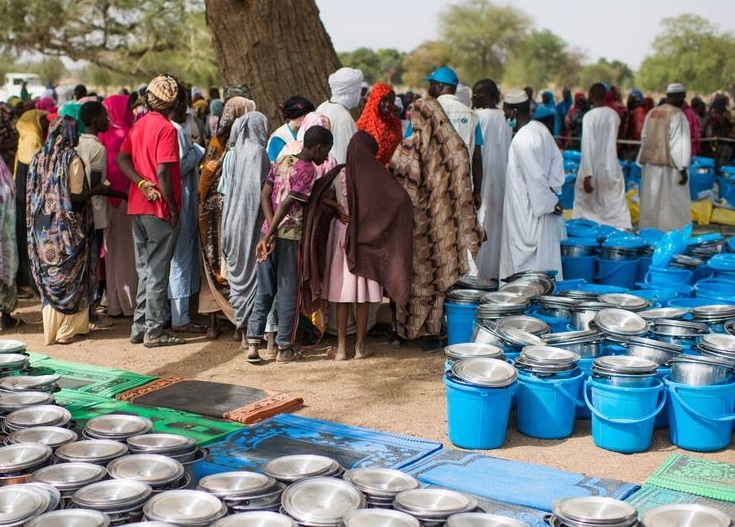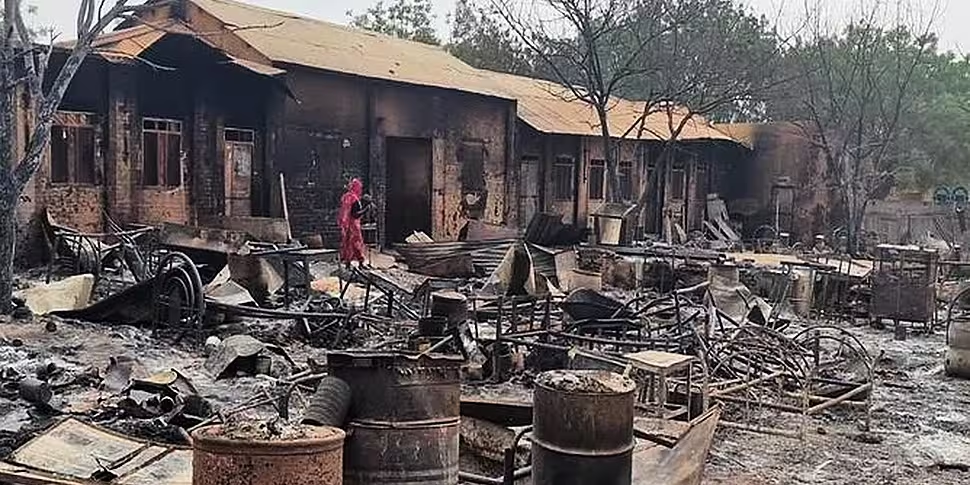The ongoing conflict in Sudan is going to increase the strain on the west to respond to such incidents going forward.
That's according to defence and security expert Declan Power, who was speaking after the United Nations warned more than 800,000 people may flee the country.
Irish charity GOAL said on Sunday that its international staff there, including one Irish citizen, have been safely evacuated.
GOAL has been working in Sudan since 1985 with a staff of 260 - including 11 international staff.
Irish charity Concern also said 10 non-Sudanese staff were evacuated from Sudan on Friday, including one Irish citizen.
They left by boat from Port Sudan and were brought to Jeddah, Saudi Arabia.
"A further 140 Sudanese staff remain in the country and are currently safe," it said.
"Some are sheltering in their homes while others have moved to safer areas. Concern is providing security advice and keeping daily contact with them," the charity added.
More than 20,000 people have crossed into Chad in the last fortnight and the UNHCR estimates that a further 100,000 could follow in the coming days.
The United Nations has said its Humanitarian Affairs chief, Martin Griffiths, is heading to the region as the humanitarian crisis nears 'breaking point'.
The UN has again urged the warring sides to protect civilians and civilian infrastructure, allow safe passage for civilians fleeing hostilities and respect humanitarian workers and assets.
Two weeks since clashes erupted in Khartoum and around Sudan, the humanitarian situation is reaching breaking point.
At the request of @antonioguterres, I'm on my way to the region to see how we can bring immediate relief to the people impacted. https://t.co/dCE9ekPb0R— Martin Griffiths (@UNReliefChief) April 30, 2023
It comes just hours after the UN and international partners appealed for an extentenstion to a 72-hour ceasefire for another three days, amid reports of ongoing airstrikes in Khartoum.
Mr Power told Newstalk Breakfast this will have knock-on effects.
"It's going to increase the strain on the western world in terms of responding to conflict and the spin-offs from it," he said.
"When you have conflict like that it causes a big shift in population movement; crops don't get sewn, resources don't get distributed.
"People then shift according to their need for those kinds of things, and then huge strain is put on the areas and regions that the refugees or internally displaced people move to".
'Focus on Ukraine'
Mr Power said the European Union is not as well-placed to respond as it should be.
"The EU would normally be in a position to respond maybe more speedily to something like this," he said.
"It's focus at the moment is on Ukraine - so the longer this conflict goes on in Sudan, the more instability [there will be] internationally".
He said the EU could normally "bring about some sort of lengthening ceasefire to get negotiations in place and get to the nub of the problem.
"If needs be, the EU will have been in a position - under a UN mandate - to deploy some sort of a force.
"That's unlikely to happen for a variety of reasons.
"In fact it suits Russia's needs at the moment for this conflict - it takes some of the pressure off them a little bit with the international focus shifting".
Mr Power added that the UN is "struggling to be relevant now" with Russia's veto being used to "cynically undermine the west's elements of cohesion."
What is happening?
Sudan has been undergoing a turbulent transition to civilian rule in the wake of the April 2019 overthrow of President Omar al-Bashir.
A power-sharing government that brought together military and civilian leaders was also toppled in a coup in October 2021.
Two weeks ago, fighting erupted between the regular Sudanese army, led by General Abdel Fattah al-Burhan, and paramilitary forces under General Mohamed Hamdan Daglo - known as the RSF.
Hundreds of people have been killed and thousands have been fleeing, including to neighbouring Chad, where some 20,000 Sudanese have found refuge.
 Food and other items are distributed in Chad to people who have fled violence in Sudan. Picture by: © UNHCR/Colin Delfosse
Food and other items are distributed in Chad to people who have fled violence in Sudan. Picture by: © UNHCR/Colin DelfosseOthers are sheltering in the Central African Republic, Egypt, Ethiopia, Libya and South Sudan - often among already vulnerable communities.
The fighting has also forced the UN to essentially halt all aid operations in a country where nearly 16 million people, roughly one-third of the population, already were in need.
Listen back here:









